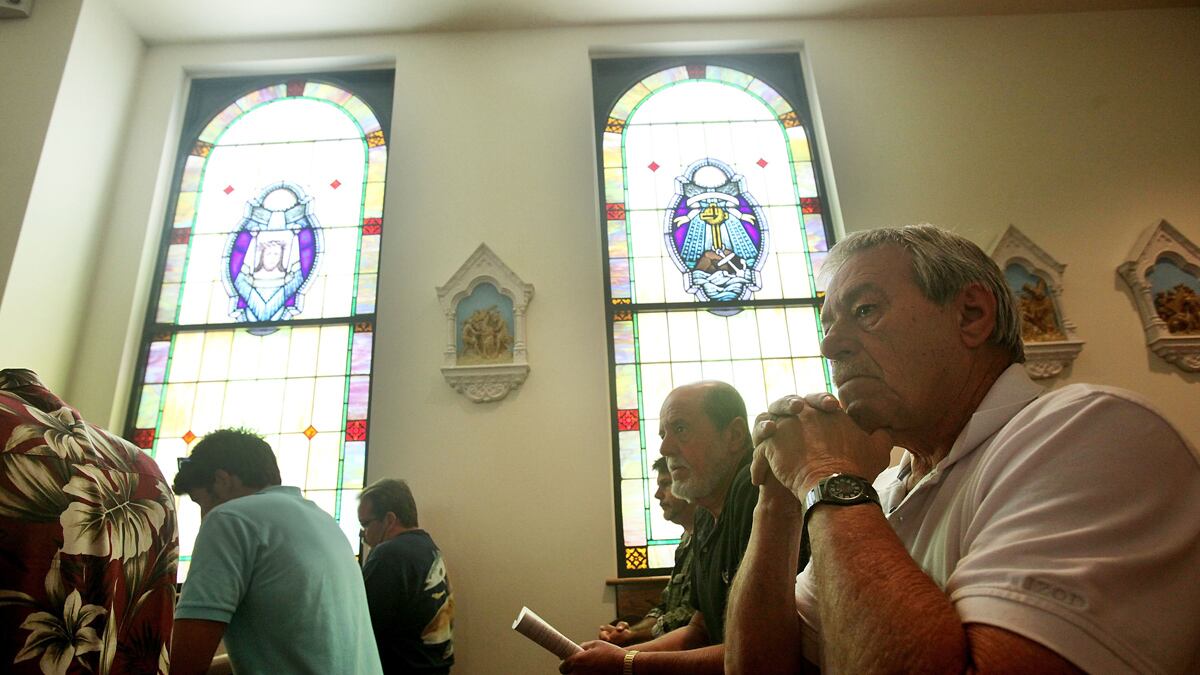For those of us who study and write about the cultural estuary where religion and politics intersect, the last couple of weeks have been pure catnip. The debate between the White House and the Catholic bishops touched cultural sensibilities that run deep in the American psyche, but the debate showed how ill prepared our country is, intellectually at least, to carry out a meaningful discussion.
Some examples: yesterday, while driving back from Connecticut to Washington with my three dogs, a Catholic politician called me to get my take on the president’s revised policy. In the course of the discussion, he asked, “How many bishops are Republican and how many Democrats?” Wrong question. Most bishops I know really do not think of themselves as political players, and the policy positions the United States Conference of Catholic Bishops has taken on a range of issues make them a bad fit with either party. They stand with the Democrats on the need for comprehensive immigration reform, increased funding for anti-poverty programs, and opposition to an overly bellicose foreign policy. On abortion and same-sex marriage, the bishops stand with the Republicans.
You could also sense that President Obama was uncomfortable at the microphone yesterday, perhaps thinking to himself, “I had to pull myself away from a meeting on Pakistan to discuss contraception?” I am sure that anyone who has spent as much time talking policy with Tim Geithner has grown a bit tone deaf to the existence, let alone the nuances, of the deep-seated, latent, oftentimes opaque cultural sensibilities of church-going Catholics who have been contributing their pennies to keep Catholic charities and hospitals and colleges afloat. Apparently, in making his first decision two weeks ago, the president ignored the advice of some of his top aides about the cultural sensitivity to the Catholic tribe.
A few times, the media discussion did recognize that something more than policy was at issue. Chris Matthews of MSNBC had not really addressed the conscience-exemption issue until when, on Sunday, all Catholics in D.C. heard a letter from Cardinal Donald Wuerl on the subject, and Matthews, who really does understand Catholic culture at a deep level, began discussing the subject on his show. At one point he noted that Catholics grew up watching A Man for All Seasons, the classic 1966 movie about St. Thomas More and his battle over conscience rights with Henry VIII. Matthews was right—this fight struck a resonant cultural chord with Catholics, one that was obviously opaque to Obama and those he sided with in making his initial decision.

I did a bunch of media interviews this past week and in each of them I was asked a question the premise of which was, "Isn’t this whole mess the result of the Catholic Church’s quirky position on sexual issues like contraception?" The question is understandable, but it also shows how deep the bias of the media can be. Putting the words “sex” and “church” in the same sentence makes for good copy. But the real reason the debate about the HHS mandate was seen as a “Catholic issue” was not just because of our quirky stance on contraception. At issue was an employer mandate, and the Catholic Church, more than any other ecclesiastical organization, employs and serves millions of Americans through our network of colleges, charities, hospitals, and social-service providers. Yet no one ever asked me, “So why does the Catholic Church have so many colleges and hospitals and charities in the first place?” That is a far more interesting question and, in this instance, it was also a more relevant question, but it went unasked.
Next Tuesday, Catholic University’s Institute for Policy Research and Catholic Studies, where I am a visiting fellow, is hosting a conference on the mission of Catholic hospitals. I am sure we will discuss the HHS mandate issue, but mostly we will ask a different question: what does it mean, in the 21st century, to carry on the healing ministry of Jesus? Should we continue to pour limited resources into high-tech hospitals? Should we focus more on community health care? Many Catholic progressives like myself ended up supporting the Affordable Care Act, but were hugely disappointed that it completely left undocumented workers out of its compass. Those workers are not outside the moral compass of the Catholic Church—indeed, they are the fastest growing demographic within the Catholic Church, and the conference will ask what can be done to provide them with quality health care. These are important questions, with historical models, complicated legal and technical questions, and interesting moral choices. But I doubt the White House will send someone to join the discussion, and I am not holding my breath that the press corps will either.
There are glimmers of genuine wisdom in the debate. Just after the president made his announcement on Friday, Bishop Blase Cupich of Spokane, Wash., published an article in the Jesuit weekly America. “[W]hile this controversy has been painful for the nation and the church, it has raised awareness of the important contribution that religion makes to the common good,” Cupich wrote. “In an era that has seen not only the erosion of the free exercise of religion through laws, regulations and court decisions, as well as the attempts to marginalize the voices of believers, commentators from various perspectives and politicians of different persuasions have had to grapple with the role of religion in society. It would be a mistake to let the next news cycle topic distract us from unpacking further this important issue, an issue which merited the first place in our U. S. Constitution.”
Indeed, as Cupich indicates, beneath the brouhaha, the most compelling cultural change was that the face of religion in America’s public square shifted. In the immediate post–World War II years, the most obvious face of religion in politics was that of Reinhold Niebuhr, and his influence persists among intellectuals: President Obama’s Nobel Peace Prize was deeply influenced by Niebuhrian ethics. In the late 1950s, the Rev. Martin Luther King Jr. became the face of religion in American politics, leading the fight for civil rights. Then, religious leaders were often at the forefront of opposition to the Vietnam War, with the Berrigan brothers, William Sloane Coffin, and Father Robert Drinan, S.J., the only Catholic priest to serve in Congress, providing a distinctly liberal face of religion in the public square.
In 1979, the Rev. Jerry Falwell formed the Moral Majority, and the face of religion in America began to wear a thoroughly conservative aspect. Curiously, the “precise trigger” for the decision to form the Moral Majority was also a government regulation: in 1978 Jimmy Carter’s IRS sought to change the way Christian schools verified their compliance with nondiscrimination laws in order to maintain their tax-exempt status. The outcry was so huge that Carter backed down, but conservative evangelicals nonetheless decided the move was a sufficient threat to their institutional autonomy that it convinced them to organize like-minded co-religionists. “It kicked the sleeping dog,” said Richard Viguerie, the conservative political strategist, at the time. “It galvanized the religious right.” Since that time religion has been seen as a conservative force in American politics.
The current fight has seen the Catholic bishops become the dominant face of religion in the public square. Unlike Falwell, they are not fundamentalists tied to a narrow understanding of religious dictates, and, as noted above, the politics that flow from their moral teachings do not fit neatly with either political party. They seem to have won the first round in their fight with the Obama administration, but they must be careful not to overplay their hand. They appealed to a deeply seated belief in the right of religious institutions to conduct themselves free from government interference, but if the fight becomes one centered on the merits of contraception, they risk losing the political capital they have just earned. It is one thing to seek an exemption from a government mandate and something different, as in the fight over same-sex marriage, to insist that their moral views should be government policy.
I am glad the president reversed course, and I hope he understood how ill served he was by those who detected no political difficulties in his first, highly restrictive approach to the issue of religious liberty. The issue is an American perennial, dating back to the Puritans’ banishment of Anne Hutchinson in 1637. The relationship between church and state is never an easy one, nor should it be. Believers belong to two kingdoms, only one of which is in this world.





